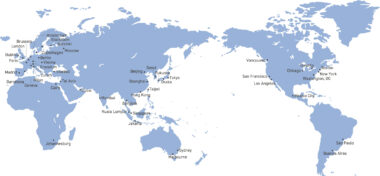

Self-driving vehicles are becoming more commonplace on our roads but the traffic legislation keeping them in check is not up to speed, according to new research led by Charles Darwin University (CDU).
The study examines the ‘driver dilemma’ in Australia, or how road traffic laws are specific to human drivers, and how this legislation has limited application to automated vehicles (AVs), which can drive without human input.
The authors from CDU, Queensland University of Technology and the University of Newcastle found in Australia, most legislative powers to stop vehicles are subject to a human driver and if they are violating road traffic laws.
For example, South Australia’s Road Traffic Act specifies a driver as a ‘person’, and an authorised officer is allowed to direct a driver to stop their vehicle, not to move their vehicle, or interfere with it or with its load.
Legislation in Queensland also defines a driver as a ‘person’, and laws such as stopping at a red light are specific to drivers.
“The driver dilemma can be strongly identified in these stopping powers, all of which are addressed to the ‘driver’,” lead author and CDU Senior Lecturer in Law Dr Mark Brady said.
“Powers directed to drivers to stop vehicles are problematic when applied to automated vehicles where the automated driving system cannot at law be considered a driver.”
The study however found most passenger transport legislation around Australia is vehicle-centric and not dependent on a driver.
For instance, New South Wales legislation on taxis and hire vehicles specifies authorities are allowed to stop a motor vehicle irrespective of who is driving.
Dr Brady said given the uptake of driverless vehicles, passenger transport legislation should be used as a template to adapt road traffic laws to include automated vehicles.
“Passenger transport laws all have explicit objectives about the public interest in safe, efficient, and accessible passenger transport,” Dr Brady said.
“These vehicle-centric powers exist where there were significant public policy grounds to stop vehicles, irrespective of the driver's conduct.”
At present there is no national AV framework, though the Australian Government as of last year was developing one.
“There is a suggestion that the familiar ‘rules of the road’ will not be needed in an automated vehicle future. However, in this future roadside enforcement would still need powers to stop vehicles,” Dr Brady said.
“As automation increases, it becomes more problematic who is the driver, in fact and in law, for the purposes of international and national road traffic laws.”
Automated vehicles, the ‘driver dilemma’, stopping powers, and paradigms of regulating road traffic was published in the journal Computer Law and Security Review.
Contact details:
Marketing, Media & Communications
Larrakia Country
E: [email protected]
W: cdu.edu.au



